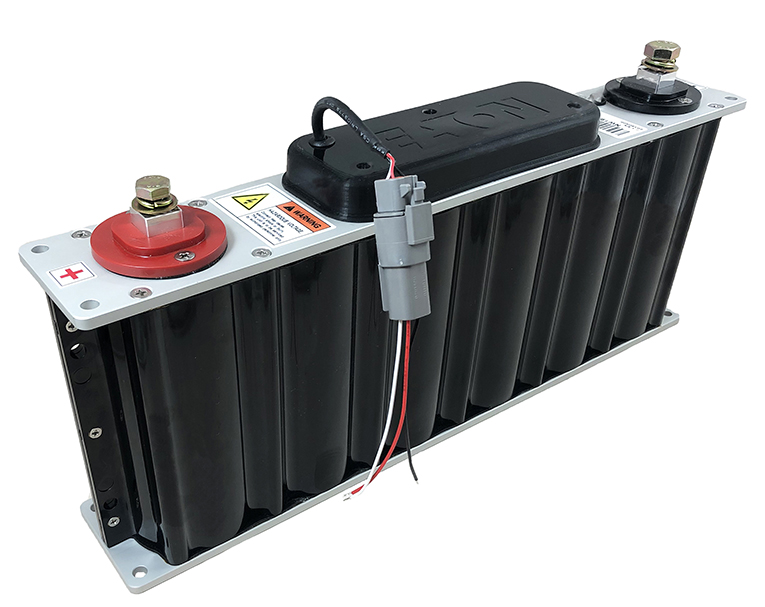On Tuesday, power management company Eaton announced its Vehicle Group developed a series of 48-volt technologies. Particularly, these solutions could assist the Company’s on- and off-highway commercial vehicle customers transition from traditional 12- and 24-volt vehicle systems; to systems that include 48-volt architecture.
Read more of our news content, here; EVs could make up half of U.S. auto sales by 2030 – Biden
More about these 48-volt systems
Accordingly, these 48-volt systems can power new, advanced energy-consuming components. Besides, they can help reduce emissions and improve fuel economy and performance. Moreover, and it is worth noting, Eaton’s supercapacitors can quickly charge and discharge at higher rates than lithium-ion batteries.
In this regard, Ben Karrer, manager, Technology Development, Eaton’s Vehicle Group, commented in a media release; “Indeed, this development comes as global vehicle manufacturers are making decisions to adopt new technologies to meet emissions regulations.”
Furthermore, “of the options available, 48-volt architectures are becoming more popular because they can decrease both CO2 and NOx simultaneously; which, in fact, helps both our customers and the environment.”
Noteworthy, most vehicles traditionally operate with a 12-volt system. However, with new advanced power-consuming components just around the corner, increasing power needs are driving toward 48-volt systems.
Therefore, these 48-volt systems can heat after-treatment catalysts to reduce NOx emissions. In fact, collectively, new emissions regulations will reduce tailpipe NOx limits by up to 90%. Thus, this can help accelerate the need for global engine manufacturers to employ additional emissions reduction strategies.
Similarly, Eaton’s Vehicle Group is also developing power electronics for 48-volt electric catalyst heating. Accordingly, this development will provide heat directly to the vehicle’s after-treatment system.
Eaton on how this solution can help decarbonize manufacturing
Moreover, this active heating helps catalyst components reach efficient operating temperatures faster upon engine start and maintain those temperatures during low load operation.
Accordingly, Karrer said; “Forty-eight-volt power will also be used to power systems such as HVAC and the engine cooling fan, which are traditionally run by the engine. Indeed, today’s systems are not intelligent—you can’t control when they’re on or off or adjust the levels. Thus, converting those components to electric alternatives allows you to control them intelligently; and also, eliminate mechanical loads.”
Furthermore, Eaton said it is also developing an electric engine cooling fan and electric air conditioning compressor. Thus, the Company will use lead-acid batteries that are inexpensive compared to lithium-ion packs. Besides, they offer a safe and more efficient solution with a longer lifespan when compared to existing lead-acid battery applications.
Lastly, supercapacitors will be able to charge and discharge at higher rates than lithium-ion batteries quickly. While the size and weight are comparable to lithium-ion packs, supercapacitors don’t retain high energy levels. Neither do they require a liquid cooling system.
Finally, Eaton noted that its mission is to improve the quality of life and the environment through power management technologies and services. Thus, it aims to provide sustainable solutions that help its customers manage electrical, hydraulic, and mechanical power.


